National Meeting

- This event has passed.
National Meeting
March 17, 2021 - March 18, 2021
This annual event for top state regulators only takes a close look at key issues and gives the supervisors a forum to discuss common challenges, and exchange ideas in a confidential setting.
Resources and presentations
Click here for copies of the presentations and shared resources.
National Meeting Agenda
Please note this meeting is for Regulator members only.
March 17, 2021
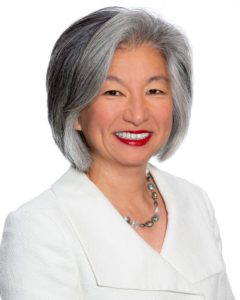
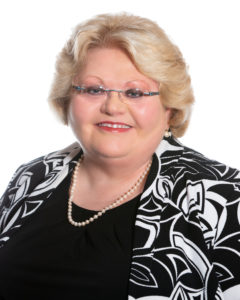 1:30 pm – 1:45 pm Opening Remarks: Lucy Ito, President/CEO, NASCUS; Rose Conner, Administrator, NC Credit Union Division
1:30 pm – 1:45 pm Opening Remarks: Lucy Ito, President/CEO, NASCUS; Rose Conner, Administrator, NC Credit Union Division
1:45 pm – 3:15 pm Around the States: Lucy Ito, President/CEO, NASCUS
3:15 pm – 3:30 pm Break
 3:30 pm – 4:30 pm Future of Payment Systems:
3:30 pm – 4:30 pm Future of Payment Systems:
Mark Dixon, Director, Payments Innovation, NEACH and
Mike Townsley, Policy Counsel & Director of Regulatory Policy, CSBS
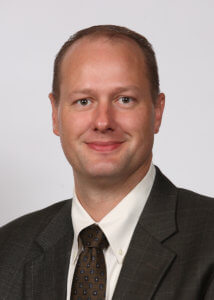 4:30 pm – 5:30 pm The Future of Capital in Credit Unions and the Broader System:
4:30 pm – 5:30 pm The Future of Capital in Credit Unions and the Broader System:
Mark DeBree, Managing Principal, Catalyst Strategic Solutions
Moderator: Brian Knight, Esq., Executive Vice President & General Counsel
5:30 pm Wrap-up
March 18, 2021
1:30 pm – 1:40 pm Opening Remarks
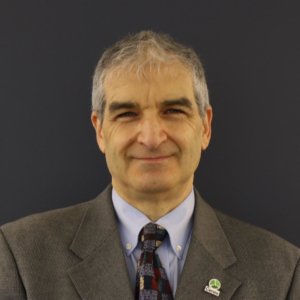
 1:40 pm – 3:00 pm Climate Change as a Safety and Soundness Issue: Steven M. Rothstein, Managing Director, Accelerator at Ceres and David Cotney, Senior Advisor, FS Vector
1:40 pm – 3:00 pm Climate Change as a Safety and Soundness Issue: Steven M. Rothstein, Managing Director, Accelerator at Ceres and David Cotney, Senior Advisor, FS Vector
3:00 pm – 3:15 pm Break
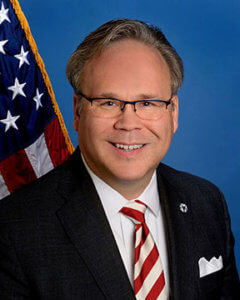 3:15 pm – 4:15 pm Fireside Chat: Todd Harper, NCUA Chairman and Lucy Ito, President/CEO, NASCUS
3:15 pm – 4:15 pm Fireside Chat: Todd Harper, NCUA Chairman and Lucy Ito, President/CEO, NASCUS
4:15 pm – 5:30 pm Wrap Up
(3/17/21)
2021 Speaker Bio
Mark Dixon, NEACH Director, Payments Innovation
 Mark Dixon is a financial services veteran with more than 15 years of industry experience and a passion for banking, payments, and technology. He previously worked for multiple financial institutions of various sizes and types. He has served in capacities such as sales, operations, electronic services, and IT operations. He is currently the Director, Payments Innovation for NEACH (a payment association serving the New England market). In this role, Mark keeps abreast of industry updates related to the modernization of the payments landscape. He uses his research and connections to educate the NEACH membership about important developments to help them navigate the complexity of the payment ecosystem. Mark completed his Bachelor’s in Business Administration from Southern New Hampshire University where he concentrated on the study of organizational leadership and minored in information technology. He is currently working on his MBA with a focus on business intelligence studies. In addition, Mark is an Accredited ACH Professional (AAP), Accredited Payments Risk Professional (APRP), and a National Check Professional (NCP).
Mark Dixon is a financial services veteran with more than 15 years of industry experience and a passion for banking, payments, and technology. He previously worked for multiple financial institutions of various sizes and types. He has served in capacities such as sales, operations, electronic services, and IT operations. He is currently the Director, Payments Innovation for NEACH (a payment association serving the New England market). In this role, Mark keeps abreast of industry updates related to the modernization of the payments landscape. He uses his research and connections to educate the NEACH membership about important developments to help them navigate the complexity of the payment ecosystem. Mark completed his Bachelor’s in Business Administration from Southern New Hampshire University where he concentrated on the study of organizational leadership and minored in information technology. He is currently working on his MBA with a focus on business intelligence studies. In addition, Mark is an Accredited ACH Professional (AAP), Accredited Payments Risk Professional (APRP), and a National Check Professional (NCP).
Mike Townsley, Policy Counsel & Director of Regulatory Policy, CSBS
Mike Townsley is Director of Regulatory Policy & Policy Counsel at the Conference of State Bank Supervisors (CSBS). Mike is a graduate of the University of Texas and the Georgetown University Law Center. He has been with CSBS since 2015. During his time at CSBS, Mike has worked on a wide range of bank and nonbank financial services policy issues including federal preemption, consumer protection, and CSBS’ litigation over the fintech charter. Mike also supports state regulators on several interagency bodies, including the Federal Financial Institutions Examination Council and the Financial Stability Oversight Council.

Mark DeBree, Managing Principal, Catalyst Strategic Solutions
As Managing Principal at Catalyst Strategic Solutions, Mark directs risk consulting, balance sheet advisory and broker/dealer services for credit unions nationwide. Formerly the organization’s Vice President of ALM Services, Mark has 16 years’ experience consulting credit unions on interest rate risk, liquidity risk, strategic planning, member deposit behaviors and mortgage servicing portfolios. Drawing on his broad industry expertise, Mark has also been instrumental in developing a number of new products and services that directly benefit client credit unions.
Since joining Catalyst Strategic Solutions as an ALM analyst in 2002, Mark has progressed through various roles in the ALM department to his current position. Previously, Mark worked as a financial analyst at Richmark Capital Corporation, where he was responsible for performing financial analysis on organizations seeking external capital. Mark also worked at Salomon Smith Barney in New York and has held FINRA Series 7 & 63 securities licenses.
Mark has both a bachelor’s and a master’s degree in business administration with a concentration in finance from Texas Tech University. He is a certified Chartered Financial Analyst (CFA). He is also a frequent speaker at credit union and examiner meetings.

David Cotney, Senior Advisor, FS Vector
David brings extensive regulatory experience to FS Vector and its clients. Previously, David was appointed as the Massachusetts Commissioner of Banks from 2010 to 2016 where he supervised all State-chartered banks and credit unions and State-licensed financial services providers. David began his regulatory career as a bank examiner with the Division of Banks in 1990.
From 2015 to 2016, David was appointed to serve as chairman of the Board of Directors of the Conference of State Bank Supervisors (CSBS). Additionally, from 2014 to 2015, David served as chairman of the CSBS Emerging Payments & Innovation Task Force which developed a Framework for the Regulation of Virtual Currency. In November 2013, David became the first State or federal financial regulator to testify before Congress on the subject of bitcoin and cryptocurrency. In 2017, David testified before the California Treasurer’s Cannabis Banking Working Group on the topic of a state-owned bank.
From 2013 to 2015, David served as chairman of the State Liaison Committee (SLC) of the Federal Financial Institutions Examination Council (FFIEC). David was also the first State member to serve as chairman of the FFIEC’s Task Force on Consumer Compliance.
David also serves as a member of the board of directors at Cross River Bank and as a member of the board of advisors for the Association for Data and Cyber Governance.
David earned a B.A. from Tufts University, an M.B.A. from Boston University, and an M.P.A. from the Harvard Kennedy School.

Steven M. Rothstein, Managing Director, Accelerator at Ceres
M. Rothstein is the founding Managing Director of the Ceres Accelerator for Sustainable Capital Markets. Ceres Accelerator aims to transform the practices and policies that govern capital markets in order to accelerate reduction of the worst financial impacts of the climate crisis and other sustainability threats. Steven’s 40 years of experience will be critical to explore the most effective strategies for the Accelerator to focus on and move capital markets towards climate sustainability.
Steven has had a successful career starting, managing and growing several non-profit, social change and government organizations. After college he was one of the founding team of Citizens Energy Corporation, the world’s only non-profit oil company. This enterprise, and its related organizations, grew to provide tens of millions of service for low income and needy individuals through oil, natural gas, electricity, energy conservation, pharmaceuticals and renewable energy. After several years, Steven went on to manage a Massachusetts $300 million human service state agency’s programs and facilities for people with intellectual disabilities. He then started and ran Environmental Futures, a management and market consulting company serving a wide range of enterprises in the US and internationally seeking to grow their environmental work. He also ran the New England market for Constellation’s entry and expansion into this market as a successful electricity broker. His career also includes running the world renowned, Perkins School for the Blind, as well as Citizen Schools and the John F. Kennedy Library Foundation.
He has worked at local, state, federal and international levels of government. Steven served on many non-profit and government boards. He has spoken and written extensively and worked with partners in the corporate, non-profit, government and philanthropy sectors.
Steven has a BA with Honors in Political Science from Williams College and an MBA from Northeastern University’s D’Amore – McKim School of Management. He also studied at Duke University’s, Institute of Public Policy. He and his wife, Susan, live in Somerville. They have two grown sons. He is currently on the Brady Campaign for Gun Safety Board and the Mass Civic Learning Coalition’s Steering Committee.
 Todd M. Harper, Chairman, NCUA
Todd M. Harper, Chairman, NCUA
Todd M. Harper was nominated to serve on the NCUA Board on February 6, 2019. The U.S. Senate confirmed him on March 14, 2019, and he was sworn in as a member of the NCUA Board on April 8, 2019. President Joseph R. Biden, Jr., designated him as the NCUA’s twelfth Chairman on January 20, 2021.
As NCUA Board Chairman, Mr. Harper serves as a voting member of the Financial Stability Oversight Council and represents the NCUA on the Federal Financial Institutions Examination Council and the Financial and Banking Information Infrastructure Committee.
Prior to joining the NCUA Board, Mr. Harper served as director of the agency’s Office of Public and Congressional Affairs and chief policy advisor to former Chairmen Debbie Matz and Rick Metsger. He is the first member of the NCUA’s staff to become an NCUA Board Member and Chairman.
Mr. Harper previously worked for the U.S. House of Representatives as staff director for the Subcommittee on Capital Markets, Insurance, and Government-Sponsored Enterprises and as legislative director and senior legislative assistant to former Rep. Paul Kanjorski (D-Pennsylvania). In these roles, he contributed to every major financial services law, from the enactment of the Gramm-Leach-Bliley Financial Services Modernization Act in 1999 through the passage of the Dodd-Frank Wall Street Reform and Consumer Protection Act in 2010.
During the Great Recession, Mr. Harper coordinated the first congressional hearing to explore the creation of a Temporary Corporate Credit Union Stabilization Fund. He also spearheaded staff efforts in the U.S. House to secure enactment of a law to lower the costs of managing both the Corporate Stabilization Fund and the National Credit Union Share Insurance Fund.
Mr. Harper led staff negotiations over several sections of the Dodd-Frank Act, including the Kanjorski amendment to empower regulators to preemptively rein in and break up “too-big-to-fail” institutions and proposals to enhance the powers of the Securities and Exchange Commission. He also developed the legislative framework for the bill that created the Federal Insurance Office to monitor domestic and international insurance issues.
Mr. Harper holds an undergraduate degree in business analysis from Indiana University’s Kelley School of Business and a graduate degree in public policy from Harvard University’s Kennedy School of Government.